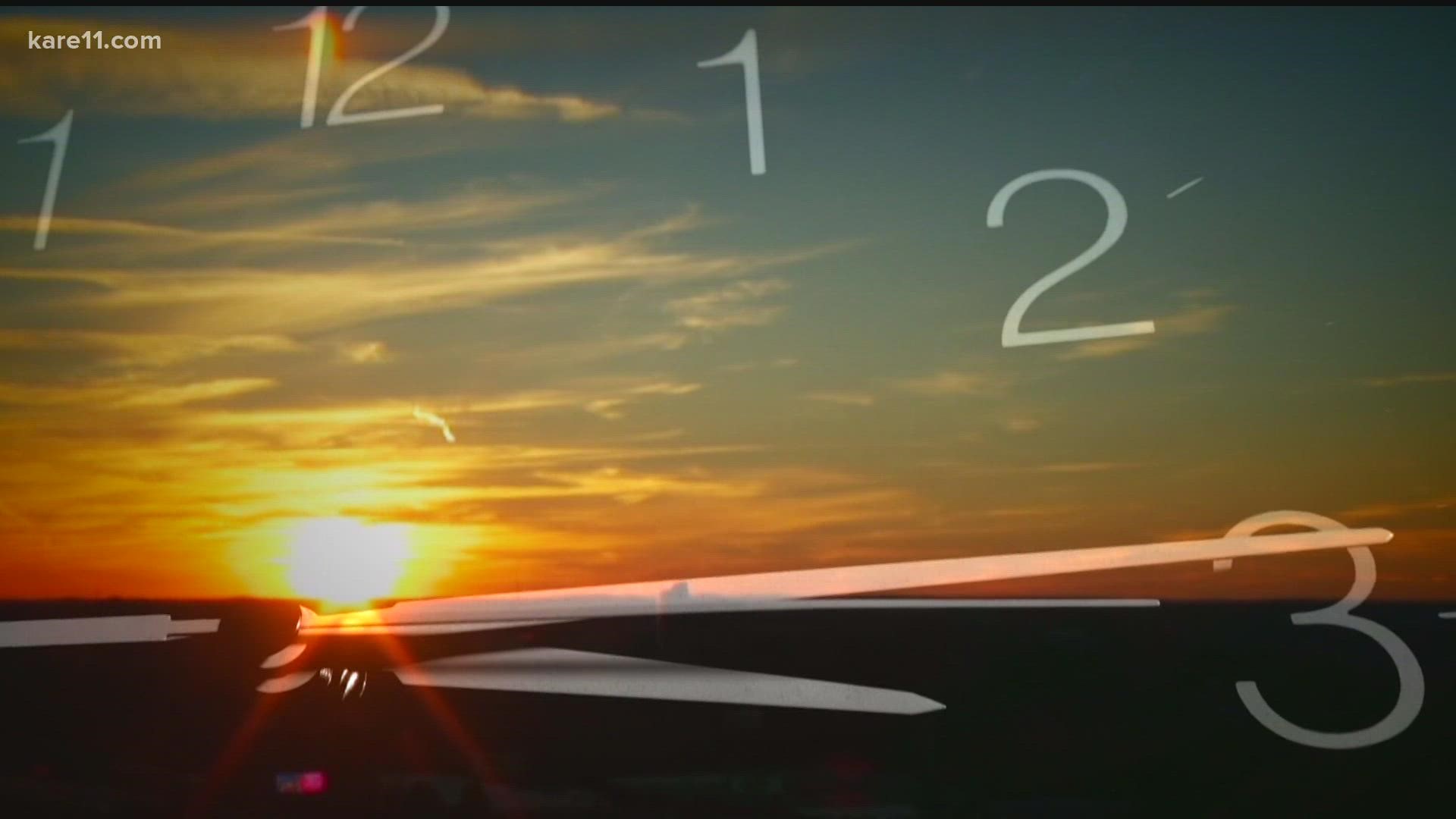ST PAUL, Minn. — It's a conversation that seems to happen every year, twice a year: how much longer will we make the switch an hour forward or backward for daylight saving time?
Minnesota Representative from St. Paul, Mike Freiberg, hopes it's not much longer.
"[We] have to adjust our schedules in the middle of the night twice a year for no discernable reason that's relevant to modern society that I could figure out," Representative Freiberg said. "And I've heard from many constituents who feel the same."
It's why Freiberg, a Democrat, led the push for a bill to switch to daylight saving time permanently in the state of Minnesota. Though the bill passed through both chambers of the Minnesota State Assembly last year, it takes an act of Congress to be approved.
Currently, 18 states have passed provisional laws to make the change to daylight saving time.
But there's no clear timeline for Congressional approval.
"The way Congress tends to work sometime is they tend to stick multiple provisions into the same bill," Freiberg said. "It wouldn’t surprise me to see a provision like this to be stuck into a larger omnibus bill at some point."
Freiberg said with more and more states passing the law he hopes there will be more pressure on Congress.
"It’s probably not on the top of this priority list, but I do think it’s an important issue that affects a lot of people," he said. "Especially this time of year when you lose an hour of sleep, I think a lot of people will have that at the forefront of their mind."
Wednesday, after Congress held a hearing on this issue, New Jersey Representative Frank Pallone (D) sent a request to the Transportation Department to ask for an analysis of the effects of changing the clocks. That analysis was promised in 2018 but was never delivered to Congress.
Watch the latest coverage from the KARE11 Sunrise in our YouTube playlist:

